10 Best Foods and Drinks for Brain Health, According to New Research

According to Alzheimer’s Disease International, someone around the world develops a new case of dementia every three seconds. It’s also a leading cause of death right here in the U.S. However, there’s some good news, too. Studies show that up to 40 percent of dementia cases can be prevented by modifying your risk factors—and one of the biggest ways to take back control is through your diet. To reduce your risk, you’ll first want to commit to cutting down on a few key foods: Red meat, butter and stick margarine, cheese, fast food, and sweets are all poor choices for brain health. There are also 10 key foods and drinks you’ll want to feature heavily if better brain health is your goal. Read on to learn which 10 things to add to your menu to slash your dementia risk.
RELATED: Tomatoes Are the Healthiest Fruit in the World, CDC Says—Here’s Why.
1
Olive oil

According to a 2024 study published in the journal JAMA Network Open, high-quality olive oil has a protective benefit on both heart and brain health.
“In a prospective cohort study of 92,383 adults observed over 28 years, the consumption of more than 7 g/d of olive oil was associated with a 28 percent lower risk of dementia-related death compared with never or rarely consuming olive oil, irrespective of diet quality,” the study states.
2
Berries
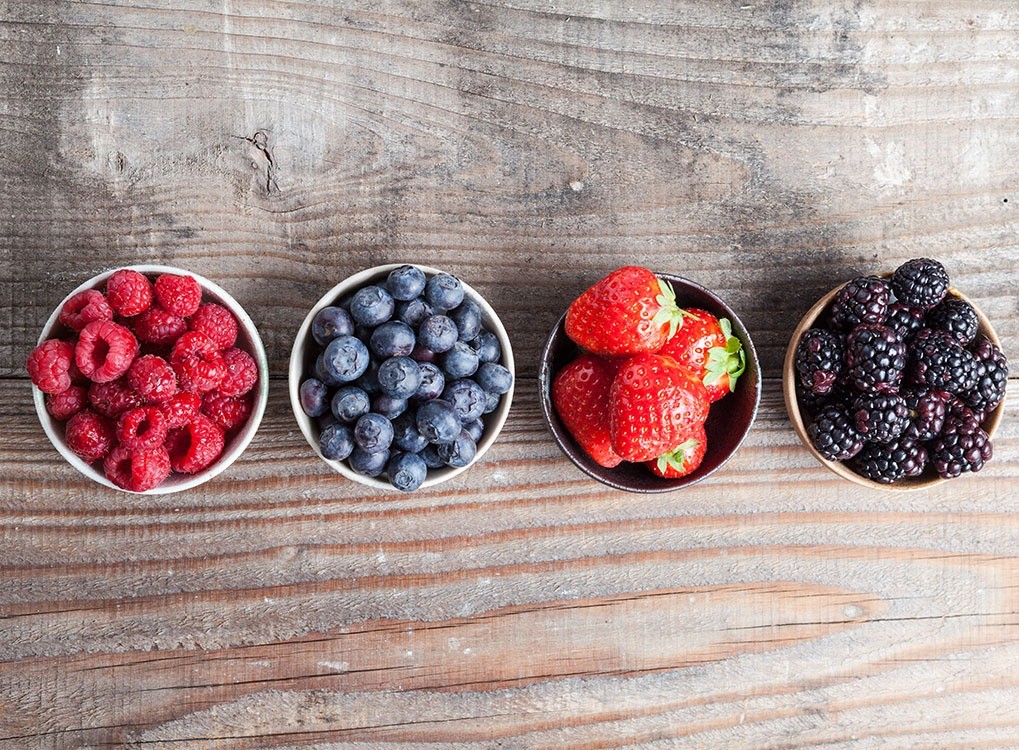
Berries are rich in antioxidants and anti-inflammatory flavonoids, which make them an ideal food for boosting brain health. One study found that it was among three key foods that could reduce your risk of dementia.
“Our findings show that consuming six additional servings of flavonoid-rich foods per day… was associated with a 28 percent lower risk of dementia. The findings were most noticeable in individuals with a high genetic risk, as well as in those with symptoms of depression,” the study authors told The Guardian.
3
Tea
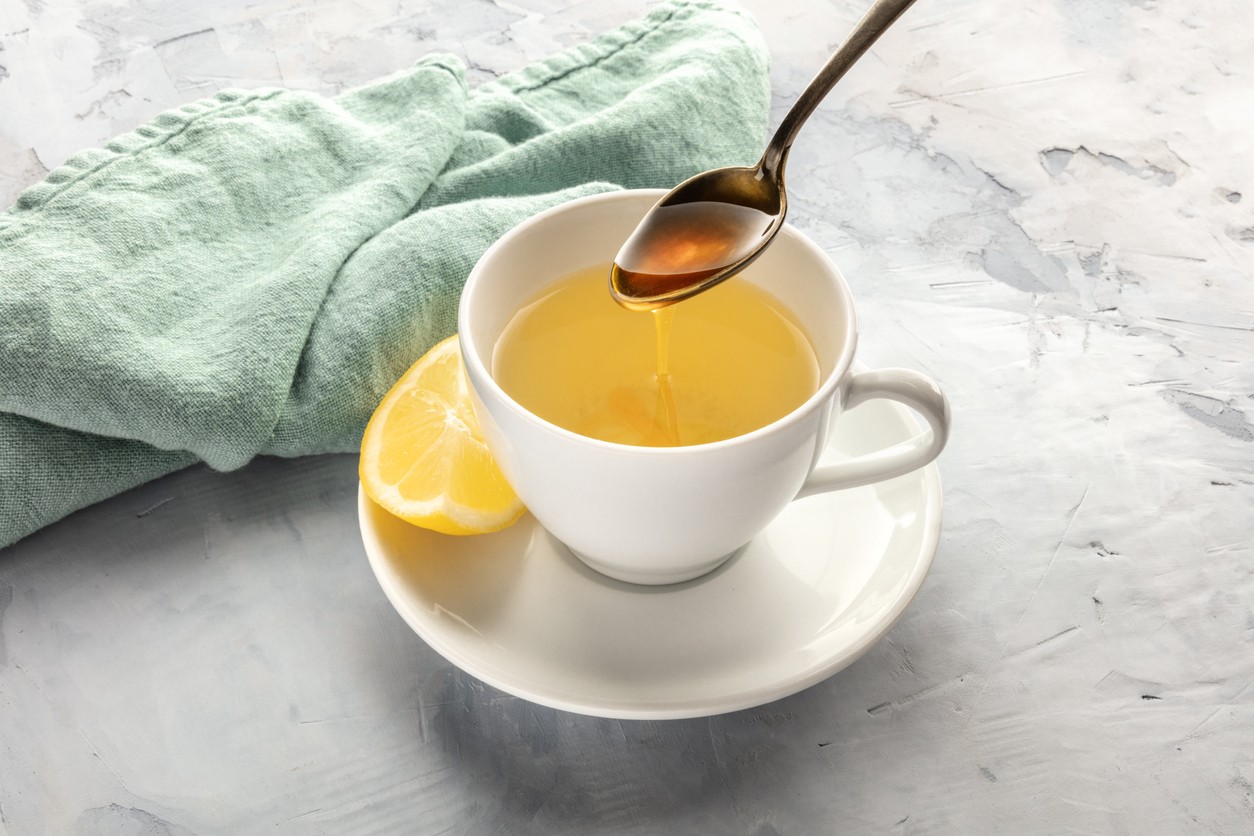
With brain benefits on par with those of berries, tea is another dementia-fighting food to add to your diet.
“Our meta-analysis demonstrated that tea (green tea or black tea) intake or consumption is associated with a significant reduction in the risk of dementia, Alzheimer’s disease (AD) or vascular dementia (VD). These findings provide evidence that tea intake or consumption should be recognized as an independent protective factor against the onset of dementia, AD or VD,” states one meta-analysis of seven studies with over 410,000 subjects.
RELATED: The 3 “Ultraprocessed” Foods You Must Avoid for a Longer Life, 30-Year Study Finds.
4
Red wine

Experts are increasingly urging the public to cut back on alcohol, and the World Health Organization (WHO) went so far as to say that no amount of alcohol is safe or healthy.
The Alzheimer’s Society says that “excessive alcohol consumption increases a person’s risk of developing dementia… so if you do not currently drink alcohol, you should not start as a way to reduce dementia risk.”
However, some studies have found that drinking flavonoid-rich red wine in moderation may have a protective effect on cognitive health.
5
Vegetables

Eating a diet that’s packed with nutrient-dense vegetables is another way to help stave off dementia, experts say. Green leafy vegetables are a particularly prominent food in the MIND diet, a meal plan that combines the Mediterranean diet and the DASH diet to protect cognitive function.
6
Nuts
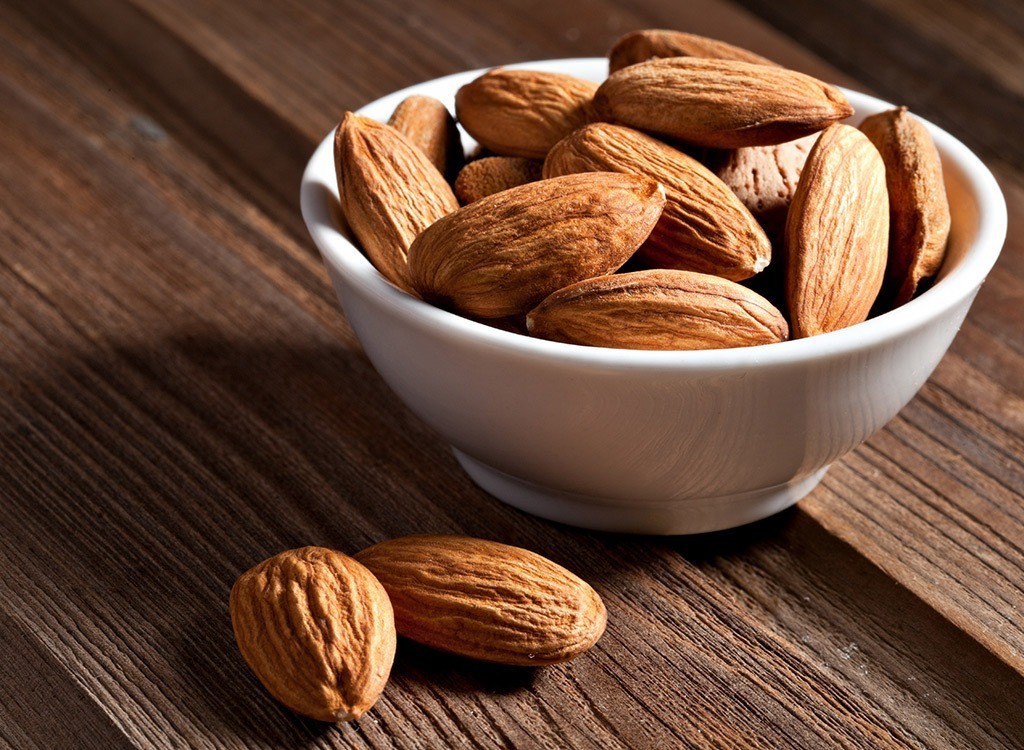
Nuts are rich in Omega-3 fatty acids and are associated with better cognitive function, including memory, speed, and mental flexibility, according to a 2023 study in the journal Nutrients. The MIND diet recommends getting five servings of nuts per week.
7
Beans and legumes
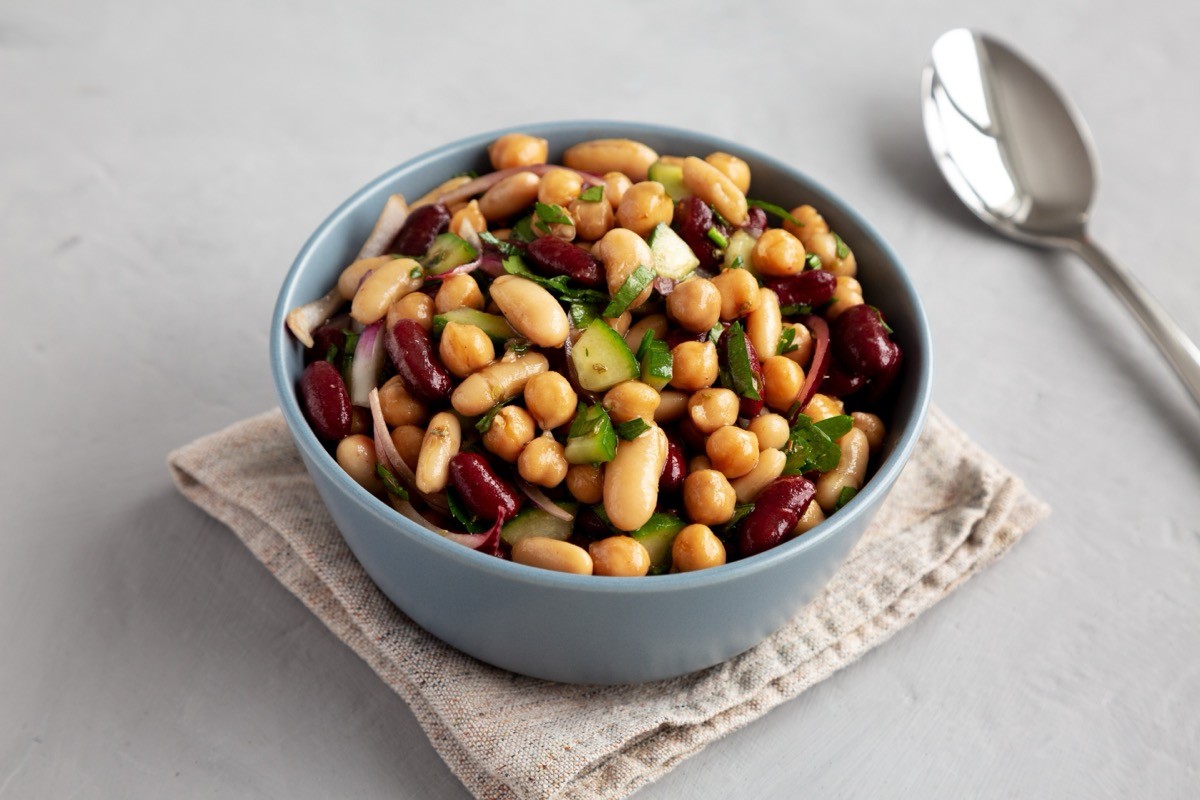
Beans and legumes are often touted as one of the best foods for longevity. Packed with fiber, protein, complex carbohydrates, B vitamins, iron, folate, and more, they’re associated with better heart health, lower cancer risk, and lower risk of cognitive disease. The MIND diet recommends getting at least four servings of beans per week, but many of the world’s longest living populations eat beans on a daily basis.
RELATED: This “Powerhouse” Vegetable Is the Healthiest, CDC Says—But You’re Probably Not Eating It.
8
Whole grains
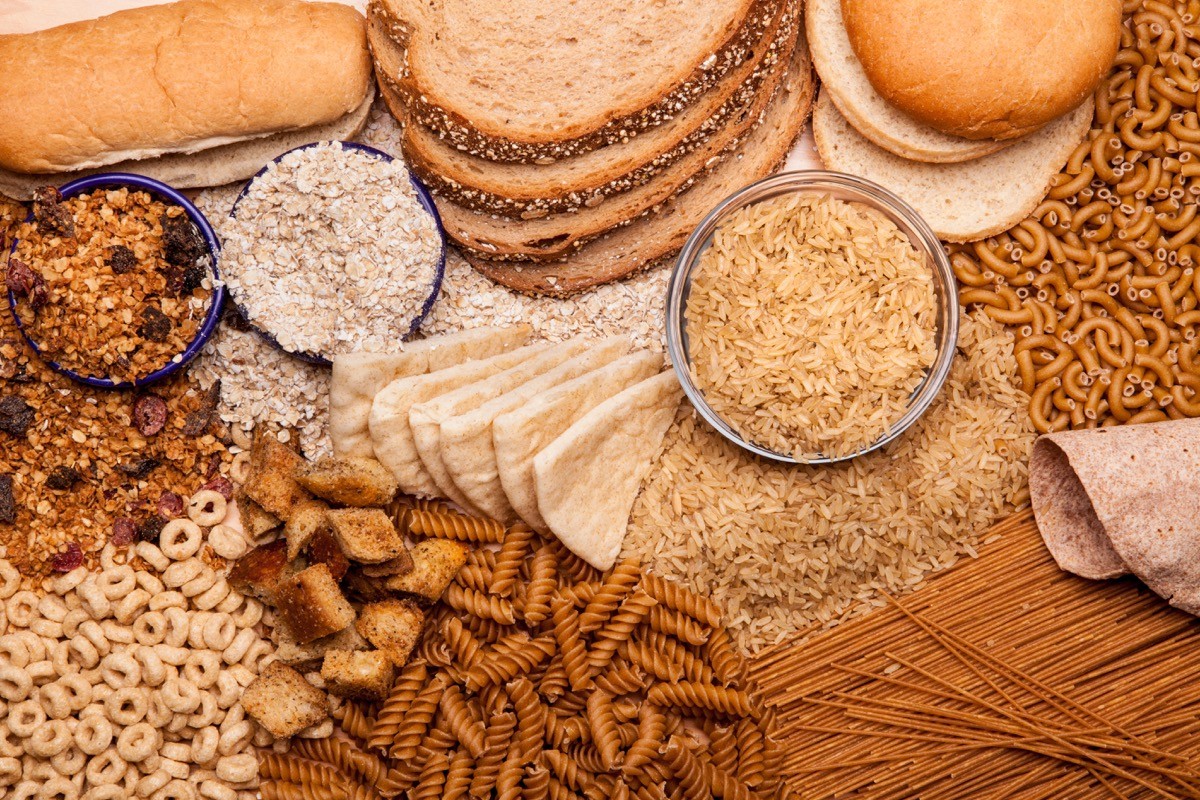
The MIND diet suggests eating three servings of whole grains per day, along with a rich diet of plant-based foods.
“Greater intake of whole grains, compared to refined grains, is consistently associated with a reduced risk of cardiovascular disease and type 2 diabetes, both of which are associated with cognitive decline,” says a 2023 study published in the journal Advances in Nutrition.
9
Seafood
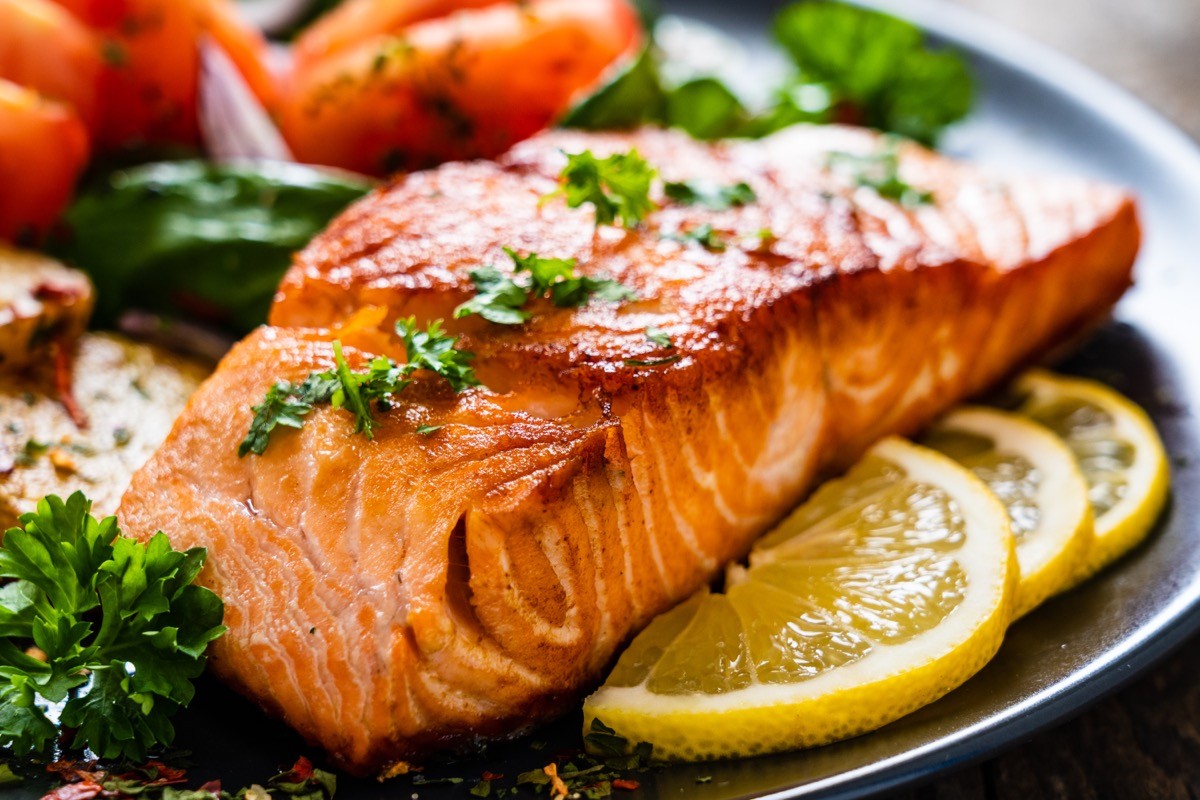
Fatty fish are rich in brain-boosting Omega-3 fatty acids, and they’re some of the best food you can eat to reduce your risk of Alzheimer’s disease and other forms of dementia. Opt for a low-mercury variety such as salmon, trout, tilapia, tuna, or cod, and aim for at least one serving per week.
10
Poultry

A lean protein source that’s low in saturated fat, poultry is another food prominently featured in the MIND diet. Experts recommend eating chicken and turkey at least twice per week to reap optimal benefits, swapping out higher-fat meats such as beef or pork for this lighter option.